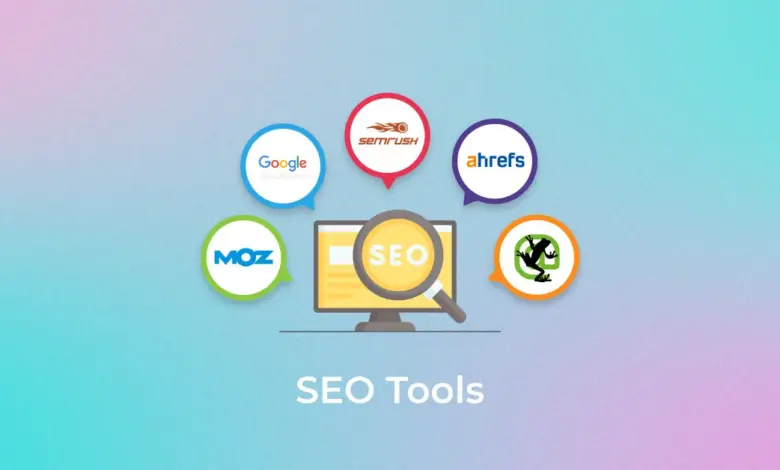Seo Tools That Actually Work For Google Rankings

SEO Tools That Actually Work for Google Rankings – Tools That Actually Work for Google Rankings are essential for boosting your website’s visibility. Choosing the right tools can significantly impact your search engine rankings. This guide delves into the world of tools, exploring their diverse functionalities and practical applications.
From on-page optimization to technical aspects, various tools cater to different needs. We’ll analyze key features, compare top contenders, and guide you through effective implementation strategies. Understanding how to leverage these tools effectively is crucial for a successful online presence.
Introduction to Effective Tools: SEO Tools That Actually Work For Google Rankings

Source: pxhere.com
In today’s digital landscape, achieving high search engine rankings is crucial for online visibility and success. Effective strategies rely heavily on the right tools to analyze, optimize, and monitor website performance. This comprehensive guide explores the essential tools that can significantly boost your website’s organic search presence.
A variety of tools cater to different aspects of , each playing a vital role in improving a website’s search engine visibility. These tools can be broadly categorized into on-page optimization tools, off-page optimization tools, and technical tools. Understanding the distinctions and functionalities of these categories is key to developing a well-rounded strategy.
On-Page Optimization Tools, SEO Tools That Actually Work for Google Rankings
On-page optimization tools focus on enhancing elements *within* your website to improve its search engine ranking. These tools analyze website content, structure, and technical elements to identify areas for improvement. Effective on-page optimization significantly impacts how search engines perceive and rank your site.
- Research Tools: These tools assist in identifying relevant s and phrases that users are searching for. Tools like SEMrush, Ahrefs, and Moz Explorer provide suggestions, search volume data, and competition analysis, enabling strategic targeting for improved visibility. Proper selection ensures that your content aligns with user search intent and increases the likelihood of attracting targeted traffic.
- Content Optimization Tools: These tools help analyze existing content and provide recommendations for optimization. These tools analyze the content for readability, density, and other crucial factors. They provide actionable insights for improving content relevance and increasing engagement. For example, tools can suggest improvements to meta descriptions, image alt tags, and heading structures.
- Page Speed Tools: Page speed optimization is vital for user experience and search engine rankings. Tools like Google PageSpeed Insights offer detailed reports on website loading times and provide recommendations for improving site speed, leading to better rankings and user satisfaction.
Off-Page Optimization Tools
Off-page optimization tools concentrate on enhancing your website’s *external* reputation and authority to boost search engine rankings. These tools track and analyze your website’s presence across the internet.
- Backlink Analysis Tools: Tools such as Ahrefs and SEMrush provide comprehensive backlink profiles, identifying both high-quality and potentially harmful backlinks. Understanding your backlink profile is crucial for assessing your website’s authority and reputation in the eyes of search engines.
- Social Media Monitoring Tools: Tools for tracking and monitoring social media activity related to your brand or website. These tools help you understand online conversations, measure brand mentions, and identify potential opportunities for social promotion, which can indirectly impact search rankings.
Technical Tools
Technical tools focus on ensuring that your website is easily crawlable and indexable by search engines. These tools examine the technical aspects of your website’s infrastructure, code, and sitemaps.
- Website Crawlers and Analyzers: Tools like Screaming Frog and DeepCrawl analyze the technical structure of your website, identifying broken links, crawl errors, and other technical issues. This proactive approach to identifying and fixing technical problems improves the efficiency of search engine crawlers and ensures a positive user experience.
- Sitemaps and XML Sitemap Generators: Tools that generate and optimize sitemaps. Sitemaps provide a structured overview of your website’s content, making it easier for search engine crawlers to navigate and index your pages.
Crucial Tools for Enhanced Rankings
![]()
Source: pxhere.com
Effective strategies rely heavily on utilizing the right tools to analyze website performance, identify areas for improvement, and track progress. These tools provide actionable insights that can significantly boost a website’s visibility in search engine results pages (SERPs), ultimately driving more organic traffic. The correct application of these tools can be a game-changer for businesses looking to enhance their online presence.
Key Functionalities of Popular Tools
Various tools offer a range of functionalities, each playing a specific role in the optimization process. These tools often provide insights into website structure, research, competitor analysis, and more. Understanding the specific capabilities of each tool allows for targeted application, leading to more effective strategies. This detailed understanding empowers users to leverage the full potential of these tools.
Tools for Improving Google Search Rankings
Several tools specialize in enhancing Google search rankings. These tools provide insights into website performance, opportunities, and competitor strategies, allowing users to make informed decisions. Tools offering in-depth analyses of backlink profiles and site audits are particularly valuable for improving a website’s authority and overall health. These tools enable users to identify and address weaknesses and capitalize on strengths in their strategies.
Comparison of Top Tools
To effectively leverage the power of tools, it’s essential to understand their strengths and weaknesses. Comparing different tools allows users to make informed decisions about which tools best suit their specific needs and resources. The following comparison highlights the key features and limitations of three prominent tools.
| Feature | SEOTool A | SEOTool B | SEOTool C |
|---|---|---|---|
| Research | Comprehensive suggestions, search volume data, and competitor analysis. Excellent for identifying high-volume, low-competition s. | Focuses on long-tail s, providing in-depth insights into niche searches. Offers a strong competitor analysis module. | Excellent for identifying international opportunities. Less robust in competitor analysis compared to other tools. |
| Site Audit | Provides detailed site audits, identifying technical issues like broken links and slow loading times. Easy-to-understand reports. | Strong on identifying mobile usability issues and provides actionable recommendations for improvements. | Highly detailed technical audit with a focus on schema markup and structured data. Provides advanced recommendations for implementing these. |
| Rank Tracking | Real-time rank tracking across various search engines, including Google. Allows for detailed analysis of ranking fluctuations. | Provides in-depth ranking data, along with historical performance analysis. Offers robust alerts for significant ranking changes. | Excellent for tracking rank changes for multiple s and regions. Requires a higher level of technical understanding. |
| Backlink Analysis | Identifies backlink opportunities and monitors competitor backlinks. Strong in identifying potentially harmful backlinks. | Focuses on backlink quality and source authority. Excellent for building a strong backlink profile. | Provides comprehensive backlink analysis, including a detailed breakdown of referring domains and anchor text. |
| Pricing | Various pricing tiers available, catering to different needs and budgets. | A subscription-based model with different packages for varying needs. | A premium service with a higher price point but often provides more advanced features. |
Choosing the right tools depends on individual needs and budget. Comparing the features and functionalities helps users select tools that best align with their goals. This allows users to optimize their resources and maximize the effectiveness of their strategies.
Advanced Strategies for Superior Ranking
Beyond basic optimization and content creation, advanced strategies leverage sophisticated tools to gain a competitive edge in search engine rankings. These strategies go beyond the surface level, delving into technical aspects and competitor analysis to craft a comprehensive approach for improved visibility.
Effective implementation of advanced strategies often necessitates a deeper understanding of user intent and search trends, combined with the ability to adapt to algorithm changes. This comprehensive approach ensures sustained high rankings and increased organic traffic over time.
Analyzing Competitor Strategies
Understanding competitor strategies is vital for developing effective strategies. Tools such as SEMrush and Ahrefs offer comprehensive competitor analysis, revealing valuable insights into their rankings, backlink profiles, and content strategies. This data allows you to identify gaps in your own approach and discover opportunities to outrank competitors by targeting under-utilized s or creating content that addresses unmet needs. For instance, by examining competitor content, you can identify gaps and opportunities to provide more comprehensive or insightful content to capture a larger audience share.
Technical Tools for Enhanced Site Structure and Speed
Technical tools are indispensable for optimizing website performance, a crucial element in achieving higher rankings. These tools facilitate analysis and improvements in website architecture, mobile-friendliness, and site speed.
By identifying and resolving technical issues, these tools enable search engines to effectively crawl and index your site, improving its visibility in search results. Common technical issues like slow loading times, broken links, and mobile responsiveness problems are often identified and corrected by technical tools, contributing to a positive user experience and a higher ranking.
Website Performance Analysis Tools
Effective website analysis tools provide insights into key performance indicators, enabling data-driven decisions for optimizing site structure and speed. These tools help understand how the site performs under various conditions, identifying areas requiring improvement.
| Website Performance Aspect | Tools for Analysis | Key Metrics Analyzed |
|---|---|---|
| Site Speed | Google PageSpeed Insights, GTmetrix | Page load time, time to first byte, resource loading times, and compression effectiveness |
| Mobile Friendliness | Google Mobile-Friendly Test | Mobile responsiveness, viewport settings, and accessibility for mobile users |
| Crawlability | Screaming Frog, DeepCrawl | Identifying broken links, crawl errors, and sitemap issues |
| Technical Errors | Various auditing tools | 404 errors, redirects, server issues, and other technical problems affecting the website’s functionality |
Last Word
In conclusion, understanding and utilizing tools effectively is paramount for achieving higher Google rankings. This guide has provided a comprehensive overview, from basic tools to advanced strategies. By implementing the strategies Artikeld, you can significantly improve your website’s search visibility and attract more organic traffic. Remember that consistency and adaptation are key to long-term success.
Clarifying Questions
What are some free tools?
Several free tools like Google Search Console and Google Analytics offer valuable insights into website performance. While more comprehensive paid tools exist, these free resources are a great starting point.
How often should I update my strategy?
Search engine algorithms are constantly evolving. Regularly reviewing and adjusting your strategy is crucial for maintaining optimal rankings.
Can tools help me analyze competitor strategies?
Yes, many tools provide features to analyze competitor websites, allowing you to identify opportunities and areas for improvement in your own strategies.
What are some common mistakes to avoid when using tools?
Over-optimization and neglecting user experience are common pitfalls. Tools should support, not dictate, your content strategy.






